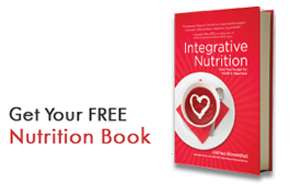Do you want to know how to stay looking young and live for longer? If so this article may be of interest. Do remember however that a calorie is just a number and a number does not tell you if it’s a “healthy” calorie or a “non-healthy” calorie. Also, the words “low-fat” must not be mistaken for always meaning “very healthy”. As a previous blog I wrote titled Isn’t Fat Bad for Me? explains, some “high-fat” foods are actually very good for you. Enjoy the read 🙂
Calorie Restriction Increases Longevity – Or Does It?
Surinder Baines (an Associate Professor in Nutrition and Dietetics at University of Newcastle, Australia) examines the implications of research showing that calorie restriction may have a role in promoting longevity in mice.
Here’s an interesting stat to bring up at the dinner table: for each human cell in your body, you have roughly ten non-human cells living in your gut. In other words, there are around 100 trillion microorganisms living in your intestines. So how does this mass of microorganisms affect our health and ageing? Last month, researchers from China and the US showed in Nature that these trillions of gut microorganisms, also called microbiota, are affected by the food we eat – and, in turn, may play a role in longevity.
In humans, the gut microbiota is virtually non-existent at birth but quickly increases with a diverse range of microorganisms. Thereafter, the gut microbiota is usually stable during the life course, but its composition can be affected by factors including illness and diet. A decline in microbial diversity has been observed in the elderly, particularly in those consuming diets with little variety. These shifts in microbial populations may impact on health, especially in the elderly, because of a reduction of some health-promoting microorganisms and an increase of others that may have adverse effects.
Gut permeability
Experimental studies in animals and humans have confirmed that ageing, medication and high-fat diets can lead to increased intestinal permeability, which allows endogenous endotoxins (harmful molecules usually found within bacteria) such as lipopolysaccharides, to pass from the gut into the bloodstream. Other factors can also influence blood lipopolysaccharide levels including infection, smoking and excessive consumption of alcohol. As high-fat diets can lead to increases in lipopolysaccharide levels researchers have proposed that this may, in part at least, be responsible for the chronic low-grade inflammation associated with diseases such as obesity, diabetes and heart disease.
Calorie restriction for longer life?
Calorie restriction has been studied for more than 70 years as a means to improve health and extend lifespans, but the exact mechanisms of how restricting calories exerts these beneficial effects are not fully defined. Most animal studies report that decreasing the caloric intake by 20% or more can prolong lifespan. Last month’s Nature study, conducted in mice, reported that lifelong calorie restriction not only extends lifespan – it also modifies the composition of the gut microbiota. Male mice were fed a low-fat diet (10% fat) or a high-fat diet (60% fat) and within each of these two dietary groups, the animals were further divided into three groups: 1) sedentary 2) with voluntary wheel-running exercise 3) fed a 70% calorie-restricted diet. The researchers analyzed fecal and blood serum samples and the trial was conducted over a four-year period until all the animals died.
Health and longevity
The study reported that regardless of exercise, the healthiest and longest living animals were in the low-fat, calorie-restricted group, compared with those in the other low-fat groups. In addition, animals in the low-fat, calorie-restricted group were reported to have lower levels of serum endotoxin. The median lifespan and maximum lifespan was increased by approximately by 20% and 25%, respectively in the low-fat calorie-restricted group. In contrast, the high-fat group had the shortest lifespan and poor health although animals in this group who were on the high-fat, calorie-restricted diet were reported to have a longer lifespan that was comparable to that observed in the non-calorie-restricted, low-fat groups. Interestingly, unlike the low-fat group, a favourable effect of voluntary exercise was observed in the non-calorie-restricted, high-fat group with increases in the median and maximum lifespans of around 13% and 18% respectively.
Microbiota populations
The study also reported changes in the composition of the gut microbiota between the low-fat diet and high-fat diet groups, and all animals were observed to have changes in their gut microbiota during the later life stages. In particular, the shift of gut microbiota was more pronounced in the low-fat, calorie-restricted group, which was observed to have higher levels of some microorganisms such as those in the Lactobacillus genus. Members of this genus have been reported to benefit gut barrier function, thus preventing endotoxins from passing into the bloodstream, and also lower levels of certain microorganisms known to be potentially harmful. The changes in gut microbiota in the high-fat group late in life could not be determined as all the animals in this group had died by that time.
What does this mean for humans?
At present it remains to be determined whether findings from this Nature study can be extended to humans for healthier ageing. The experimental dietary extremes regarding fat composition and caloric restriction used in animal studies offer interesting insights into modulation of gut microbiota, and further investigations of other dietary manipulations representing more usual diets will determine the utility of calorie restriction and the impact on gut health. Not all calories are the same, and it would be prudent not to compromise nutritional adequacy in light of calorie restriction. Your best plan is to restrict the consumption of excessive calories or “empty calories” from nutrient-poor foods for overall health and well-being.
Source: Asian Scientist









Leave A Response